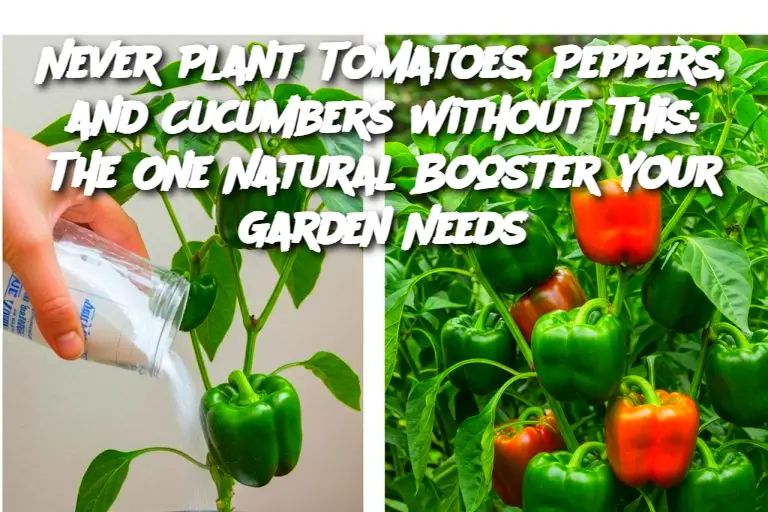ADVERTISEMENT
Introduction:
Tomatoes, peppers, and cucumbers are warm-weather favorites in every vegetable garden—but they can be finicky growers. Whether you're battling blossom-end rot, poor fruit set, or slow growth, there’s one all-natural secret that can dramatically improve your results: compost tea. This nutrient-rich, microbe-packed solution supercharges your plants, boosts soil life, and improves yield. Here's how to make and use it for thriving, productive crops.
Ingredients:
To make basic compost tea, you’ll need:
2 cups of well-aged compost (preferably organic)
1 gallon of dechlorinated water (rainwater is ideal)
1 tablespoon of unsulfured molasses (to feed beneficial microbes)
A 5-gallon bucket
A mesh bag or cheesecloth (optional, for straining)
Optional boosters:
1 teaspoon of seaweed extract
A pinch of rock dust or azomite
1 teaspoon of fish emulsion
Preparation:
Place the compost in the mesh bag or directly into the bucket.
Fill the bucket with dechlorinated water.
Stir in the molasses and optional additives if using.
Let the mixture sit for 24–36 hours, stirring occasionally or aerating with an aquarium pump to encourage microbial growth.
Strain the liquid if necessary. The tea is now ready to use!
Application:
Pour the compost tea at the base of each plant every 1–2 weeks during the growing season.
For foliar feeding, dilute the tea 1:1 with water and spray directly onto leaves in the early morning or evening.
Serving and Storage Tips:
Use compost tea within 24 hours of brewing for best results.
Store unused tea in a sealed container in a cool, dark place—but try to use it within 48 hours.
Avoid brewing in direct sunlight to prevent overheating and microbial die-off.
Variation:
ADVERTISEMENT
